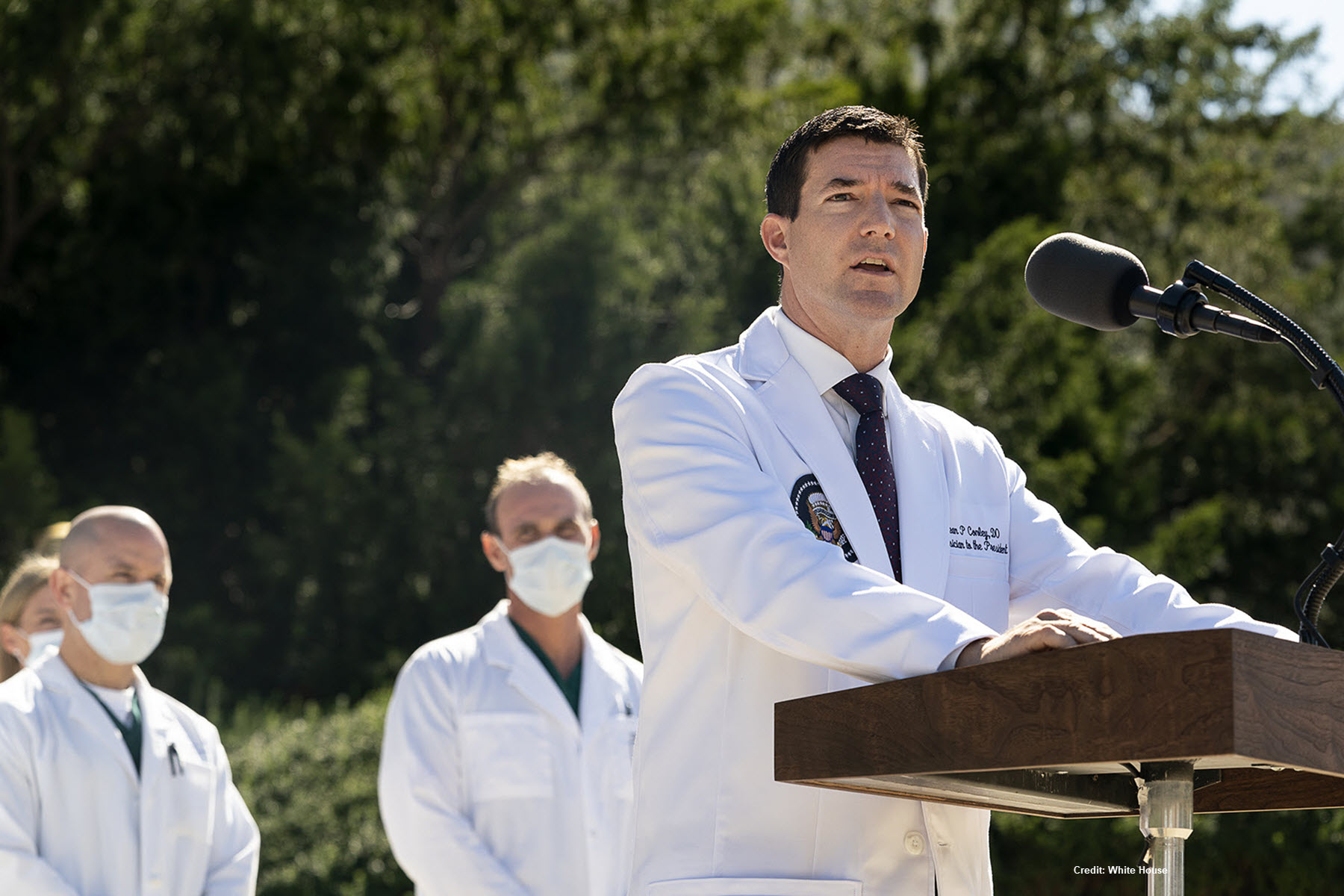Trump Leaves Hospital After COVID Treatment

Earlier, Conley said that in addition to continued injections of anti-malarial drug remdesivir, doctors also started giving the president the steroid dexamethasone, which studies have shown may help reduce risk of death in hospitalized COVID patients.
Conley said Trump does not have a fever and is up and walking around the presidential suite at Walter Reed.
But Friday, he said, Trump had a “high” fever and oxygen levels below 94%. Although Trump insisted he didn’t need it, Conley said they gave him supplemental oxygen “for an hour, maybe, and then it was off and gone.”
Eric Topol, MD, editor in chief of Medscape, WebMD’s sister site for medical professionals, says giving Trump dexamethasone at this point only makes sense if he was still on supplemental oxygen.
“Now dexamethasone has been added to the kitchen sink of drug interventions,” Topol said on Twitter. “For his ‘brief’ need for oxygen? (compared with no oxygen). Patients in the pivotal trial showed no benefit, and potential harm, if oxygen was not received.”
Topol also questioned Conley’s respond to a question about the status of Trump’s lung function. Asked about the president’s lung X-rays and scans, Conley said, “we’re tracking all of that. There are some findings but nothing of a major concern.”
He refused to respond to questions about what those findings were.
“Of course the truth on all these medical matters inevitably come out,” Topol tweeted.
Vin Gupta, MD, told CNBC that said the doctors’ actions suggest Trump may have pneumonia.
“The treatment the doctors report they administered suggest the president has COVID pneumonia of at least mild severity,” said Gupta, who is a member of the faculty at the University of Washington’s Institute for Health Metrics and Evaluation.
The president, who is at higher risk for severe illness because of his age and obesity, also received a dose of an experimental antibody therapy on Friday “as a precautionary measure,” Conley said Friday.
Regeneron, the company that makes the “antibody cocktail,” released early results of the therapy this week, saying the drugs tamped down symptoms and reduced viral load in COVID patients who were not in a hospital and who had not mounted their own immune response to the virus. The first study included just 275 patients. Another study is underway to confirm the findings.